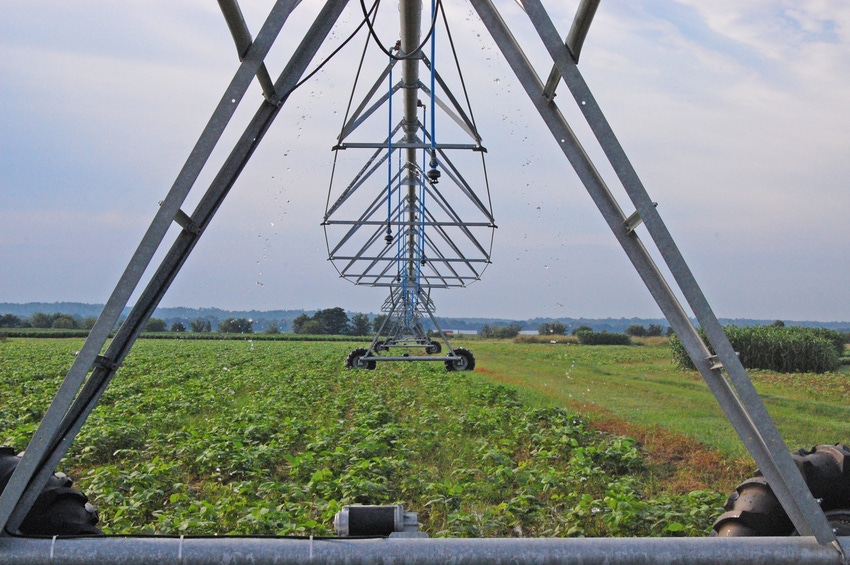February 19, 2014

The challenge of raising irrigated farm acreage in Alabama to a level that compares favorably with acreage in neighboring Georgia and Mississippi will rest largely on the shoulders of Wesley Porter, who was recently hired as the Alabama Cooperative Extension System’s irrigation specialist.
Currently, Mississippi and Georgia boast a combined 3 million acres of irrigated row-crop acreage, while Alabama maintains a mere 150,000 acres.
Porter is assuming his new position at an especially critical juncture in Alabama agriculture, according to Paul Mask, Alabama Extension assistant director for agriculture, forestry and natural resources and assistant dean for Extension in the Auburn University College of Agriculture.
“Thirty years ago, we watched growers in neighboring Georgia invest in irrigation systems at a steady pace while most of us in Alabama continued to rely on normal rainfall, and we’ve paid a high price for it,” Mask says. “We could afford that luxury three decades ago when it cost less to raise a crop, but now, with input costs spiking, it really amounts to betting the entire farm on rainfall.”
As producers in neighboring Georgia and Mississippi have learned through decades of experience, irrigation often provides the assurance, if not peace of mind, that their decision to plant a high-value, water dependent crop was the right one, according to Porter.
In addition to ensuring higher rates of irrigation adoption over the next few years, Porter says another one of his priorities will be encouraging the adoption of variable rate and standard irrigation scheduling methods, which, in addition to securing higher yields, also contributes to more judicious water use.
“Without a proper scheduling method, we are just blindly applying water instead of applying the amounts tailored to a plant’s specific need,” he contends. “In fact, overwatering crops may actually hurt yields, so a main concern should be ensuring that we’re neither wasting water nor decreasing yield, while giving the plant only the water that it needs.”
Another one of Porter’s priorities will be helping tailor irrigation systems to the specific needs of producers. While it’s true in the broad sense that Alabama has plenty of water, this fact becomes more complicated when applied to individual cropland, where water availability is shaped by many factors — field dynamics, soil dynamics and, in many cases, where the water happens to be located.
“All of these are huge factors in the type of irrigation available to producers,” Porter says. “In many parts of Alabama field sizes are very small, which negates the feasibility of using overhead irrigation systems such as center pivots or lateral systems.”
“In many of these small fields, drip irrigation may work best, especially in cases where the producer has auto-steer capabilities,” he says. “In some fields, solid set systems may be better solutions, though these typically require more labor and can interfere with typical production applications.”
“In other fields, a flood-type irrigation approach may be the best option, though the slope of the field and soil type must be considered.”
In addition to guiding irrigation adoption in Alabama, Porter will continue to carry similar responsibilities in Georgia, where he serves as an Extension specialist and assistant professor in the University of Georgia’s Crop and Soil Sciences Department. Porter believes this dual role will afford some unique insights into the irrigation challenges in Alabama.
“In terms of irrigation use, Georgia is an especially progressive state, and there are some practices in Georgia that can be quickly replicated in Alabama without the trial and error period that Georgia farmers initially endured,” he says. “I’ll also be in a position to pull expertise from both states on specific issues to better ensure that both Alabama and Georgia producers are receiving the most current and relevant up-to-date information on irrigation.
As native of Pickens in upstate South Carolina, Porter holds his bachelor’s degree in agricultural mechanization and business and his master’s in agricultural engineering from Clemson University. He earned his Ph.D. in agricultural engineering from the Oklahoma State University.
You May Also Like




